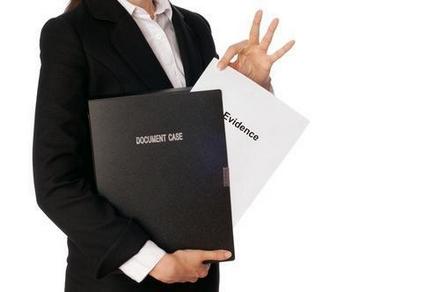TELEPHONES ANSWERED 24 HOURS A DAY
Discovery: Defendant Freed After FBI Admits It Withheld Evidence
 A man previously considered a threat to the nation and a radical eco-terrorist was released on Thursday, January 8, after the FBI admitted it had withheld thousands of pages of evidence. The man had served about nine years in custody for plotting to bomb or torch the Nimbus Dam, a U.S. Forest Service lab and cellphone towers near Sacramento, California. But it came to light recently that prosecutors had inexplicably withheld a substantial number of documents and evidence during trial despite requests from defense counsel for some of this evidence. The release of the man was part of an agreement between defense counsel and the government to resolve the issue of the material not turned over at trial.
A man previously considered a threat to the nation and a radical eco-terrorist was released on Thursday, January 8, after the FBI admitted it had withheld thousands of pages of evidence. The man had served about nine years in custody for plotting to bomb or torch the Nimbus Dam, a U.S. Forest Service lab and cellphone towers near Sacramento, California. But it came to light recently that prosecutors had inexplicably withheld a substantial number of documents and evidence during trial despite requests from defense counsel for some of this evidence. The release of the man was part of an agreement between defense counsel and the government to resolve the issue of the material not turned over at trial.
Discovery Obligations of the Government
As in civil trials, in a federal criminal trial the parties engage in an exchange of information and evidence before the case proceeds to trial. This exchange of information (called “discovery”) is meant to reduce the chances of the other party being surprised at trial. More importantly, a complete and open discovery process allows the defendant the opportunity to learn not just what the government is charging the defendant with but what testimony and evidence these charges are based upon.
In some cases, the defense and the government have a similar duty of disclosure during discovery. For instance, if either side wishes to use an expert’s testimony, certain disclosures must be made. But there are some obligations that fall squarely on the government’s shoulders. For example, if the government or any government agency (like the FBI or other law enforcement agency) has evidence that suggests that the defendant is innocent, the government must turn over this information to the defendant, even if the defendant does not ask for it.
What Happens if the Government Does Not Provide Discovery?
Discovery is subject to the power of the court, and so the court can take certain actions if the government does not follow the rules of discovery. For instance, the court can order that the government immediately turn over the evidence, delay the proceedings to give the defense an opportunity to review the evidence, or even prevent the government from introducing the undisclosed evidence or testimony at trial.
In certain extreme cases, a government attorney can face disciplinary actions for failing to comply with discovery. Disciplinary action can include written or published reprimands; additionally, suspension of licenses are likely to be used in connection with other remedies and are more likely in cases where the attorney acted knowingly and deliberately.
Contact the Law Offices of Hal M. Garfinkel LLC, Chicago Criminal Defense Attorney to Protect Your Rights
If you attempt to defend yourself in a criminal case, you are expected to know all the rules and actions you must take to protect your rights. If you do not act quickly after the government violates discovery rules, you may lose your right to later challenge the evidence. Contact experienced Chicago federal crimes defense attorney Hal M. Garfinkel today at 312-629-0669 to discuss your case and protect your rights.



